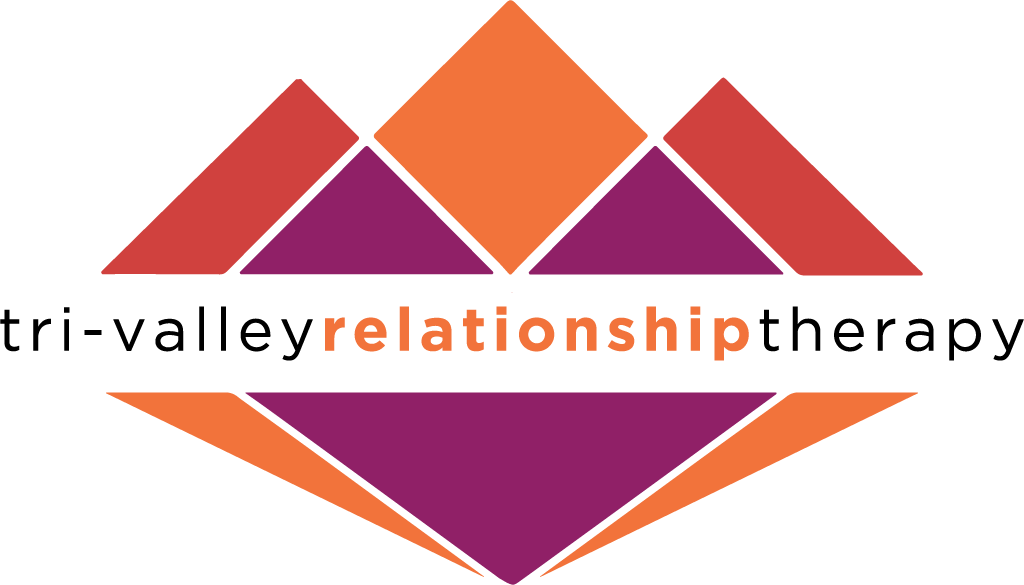Couples Counselor's Tips for a Secure Relationship
Couples & marriage counseling at Tri-Valley Relationship Therapy, Inc. in the East Bay is especially focused on helping couples build a secure relationship that enhances trust & a deeper connection. The center has locations in Dublin & Oakland.
In my couples counseling practice at Tri-Valley Relationship Therapy, Inc., I routinely see couples that seek therapy to improve their communication with each other. Once I begin to explore the quality of their emotional connection, it becomes clear that communication break-down is merely a symptom of the bigger issue-insecure attachment. The instinct for attachment is hard-wired into our brain from birth. Babies, infants, children all need secure attachment with their caregivers to sustain their development and survival. The parents or caregivers become the primary attachment figures in our lives. The quality of the emotional connection between a primary attachment figure and a child is a critical predictor of the quality of intimate attachments the child will experience as an adult. Any disruptions, gaps or inconsistencies in the caregiver’s ability to emotionally connect with the child has a significant, negative impact on the child’s ability to form secure attachments as an adult.
Do you have a safe haven & a secure base?
Children view their attachment figures as a safe haven where they can find love, attention & care when they are sick, tired or scared. The attachment figure also serves as a secure base for the child to explore the world. A secure attachment promotes intimacy and autonomy. The same dynamic plays out in adulthood in our intimate relationships. Most couples seeking marriage counseling or couples therapy do not have a safe haven in their partners and consequently their relationships don’t offer them the safety to venture out into the world and function in an autonomous manner.
Dependency is not a bad word
Our society promotes the idea of independence over dependence. Depending on another is seen as a sign of weakness and is often labelled as clingy, needy or burdensome. This notion of dependency being an unattractive attribute in intimate adult relationships cannot be farther away from the truth. In a securely attached adult relationship, the more effectively the partners are able to depend on each other, the more independent they become in their life, work, social connections etc. In my work with couples, I emphasize that dependency is actually a good attribute in a relationship because it provides that safe haven and secure base to the partners to become autonomous and independent through discovery and exploration. Of course, dependency in this context does not imply a co-dependent relationship.
What is secure attachment?
Our attachment needs are legitimate and we should not be ashamed to articulate those needs to our partners because by meeting these needs, partners can enhance each other’s physical, mental and emotional well-being. The most basic need is to feel safe and loved. We want to know if our partners will comfort us and make us feel safe. Dr. Sue Johnson, the founder of Emotion Focused Therapy, uses the acronym A.R.E. to describe healthy and secure attachment.
Accessibility:
This component of secure attachment speaks to if partners are present, supportive and attentive to each other. Underlying most relationship distress are basic attachment questions that partners have for each other: Can I depend on you to make me a priority? Can I get your attention? Will you be receptive to my feelings? The answer to these questions is the need for accessibility.
Responsiveness:
Being responsive means that your partner can count on you to respond to their needs and vice versa. This component answers attachment questions such as: Will you comfort me when I am distressed? Will you show me compassion? Will you be sensitive to my needs?
Engagement:
Knowing that your partner will keep you close and give you a place in their life that no one else occupies. It is the answer to attachment questions underlying the need for closeness: Will you confide in me? Will you share your fears, vulnerabilities & worries with me? Will you show and receive affection through words and touch?
I hope this excerpt is helpful to readers in initiating the process of exploring how these three components of secure attachment play out in their relationship. A helpful exercise for couples would be to reflect on the times in your relationship when you and your partner were accessible, responsive and engaged with each other and identify other times, when these components were missing. Couples can also use the same exercise to share their needs around accessibility, responsiveness and engagement in a mutually receptive manner.
Written by: Nagma V. Clark, Ph.D., L.P.C.C. specializing in sex therapy, couples therapy & marriage counseling, premarital counseling, individual relationship therapy & LGBTQQI couples counseling at Tri-Valley Relationship Therapy, Inc. in the East Bay, in Dublin & Oakland.
If you and your partner would like to improve your relationship by making it more secure, couples/marriage counseling at Tri-Valley Relationship Therapy, Inc. in the East Bay can help. Dr. Clark utilizes the Emotion Focused Therapy (EFT) principles to help couples develop a secure attachment with each other that promotes trust, safety and a stronger connection.
Call 925-400-3541 or email doctor.nvclark@gmail.com to schedule a free phone consult or fill out the contact form and you will be contacted within 12-24 hours.

